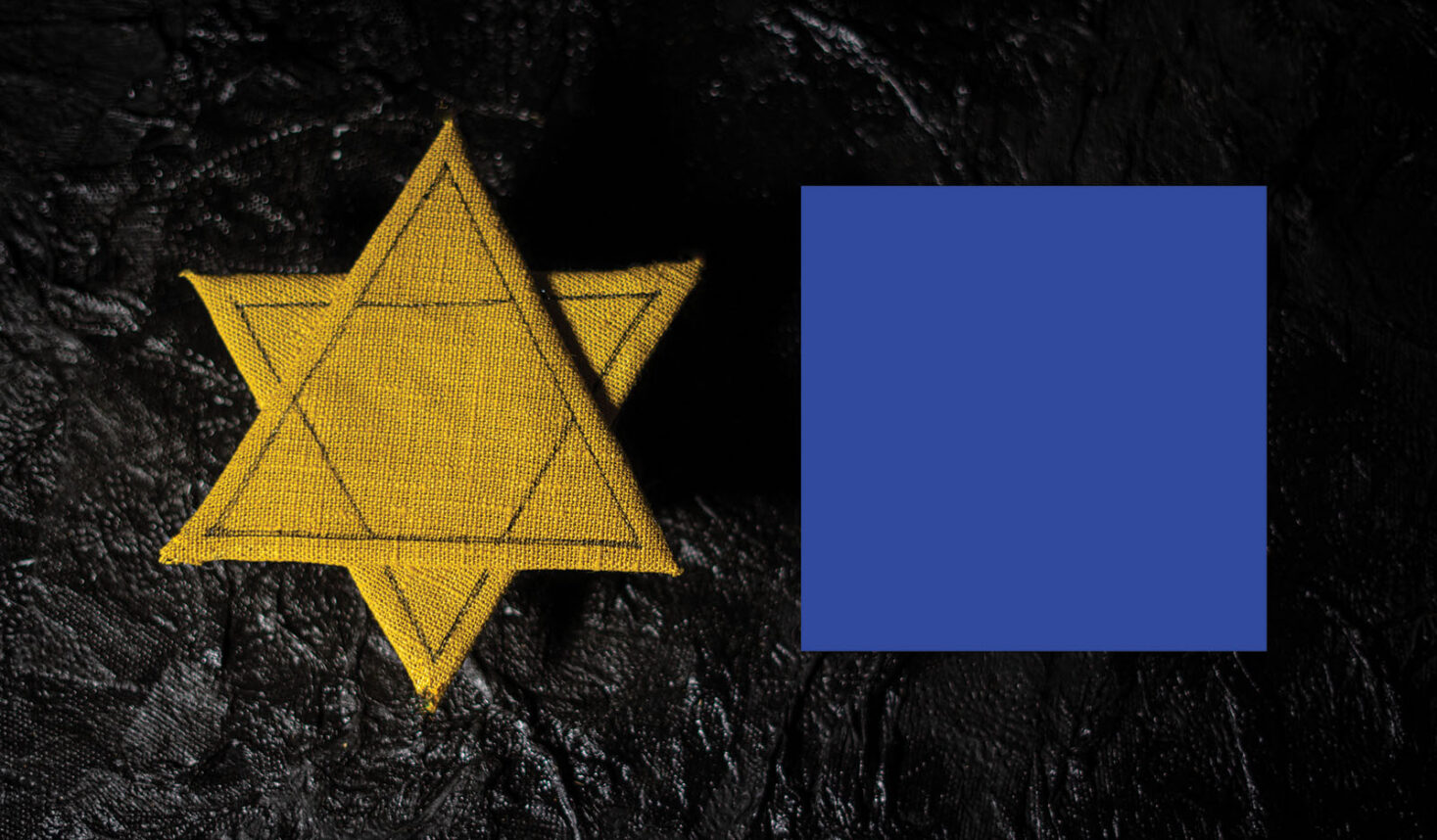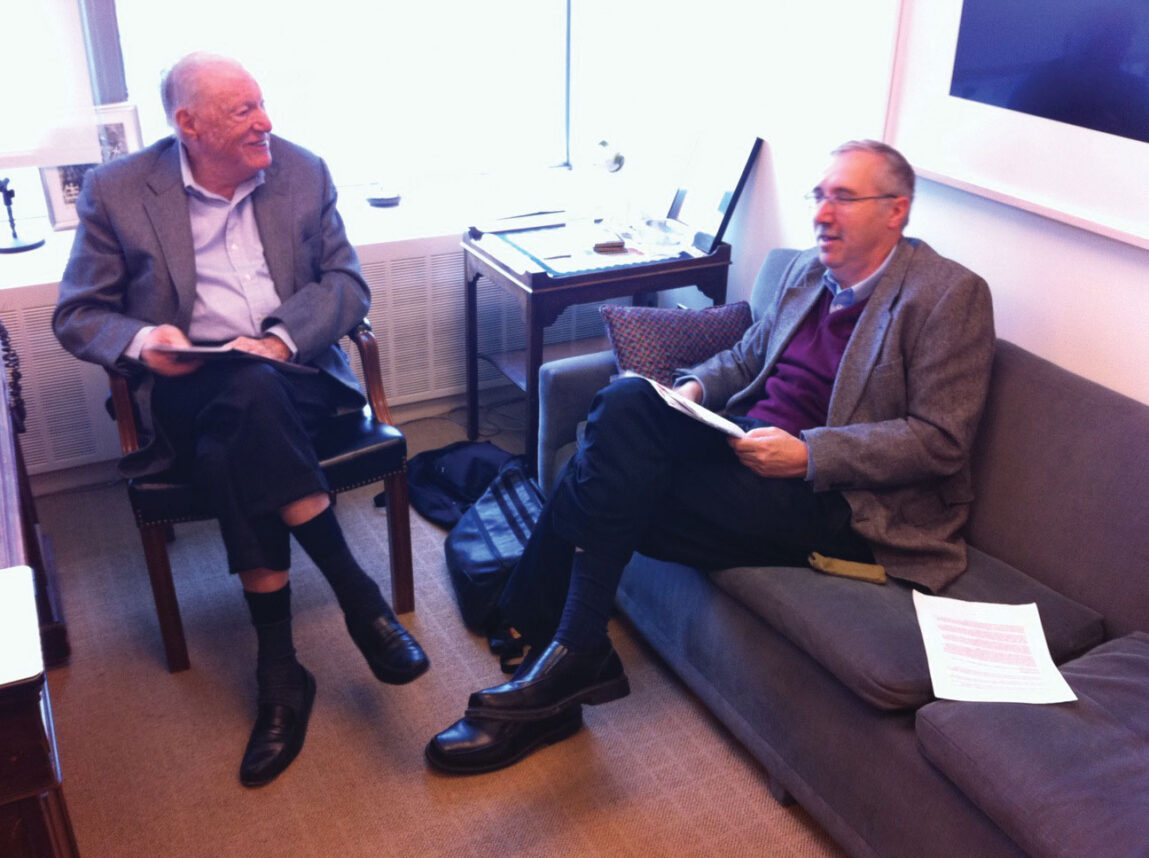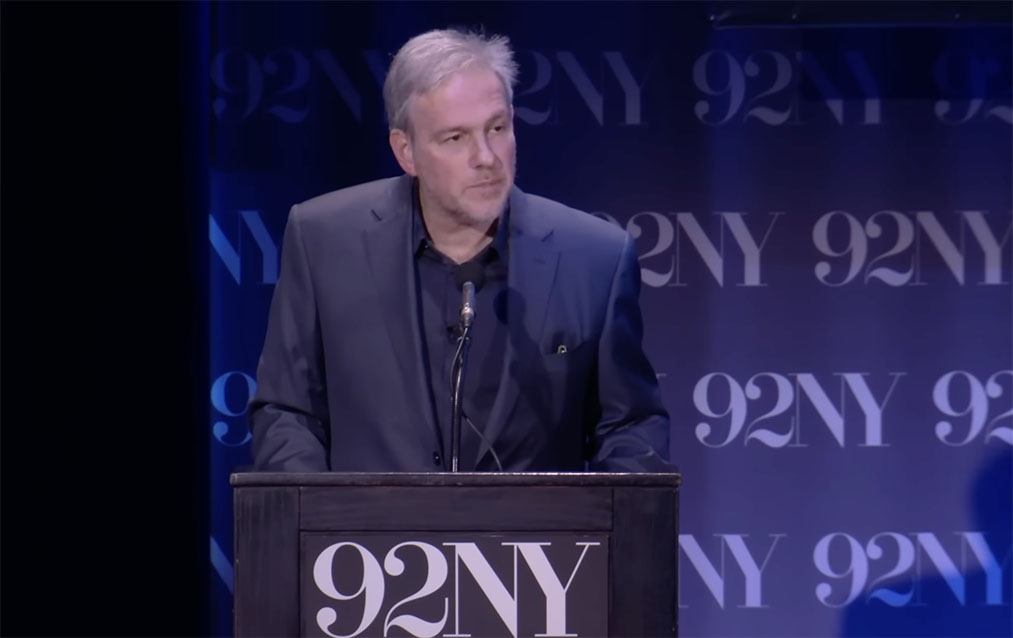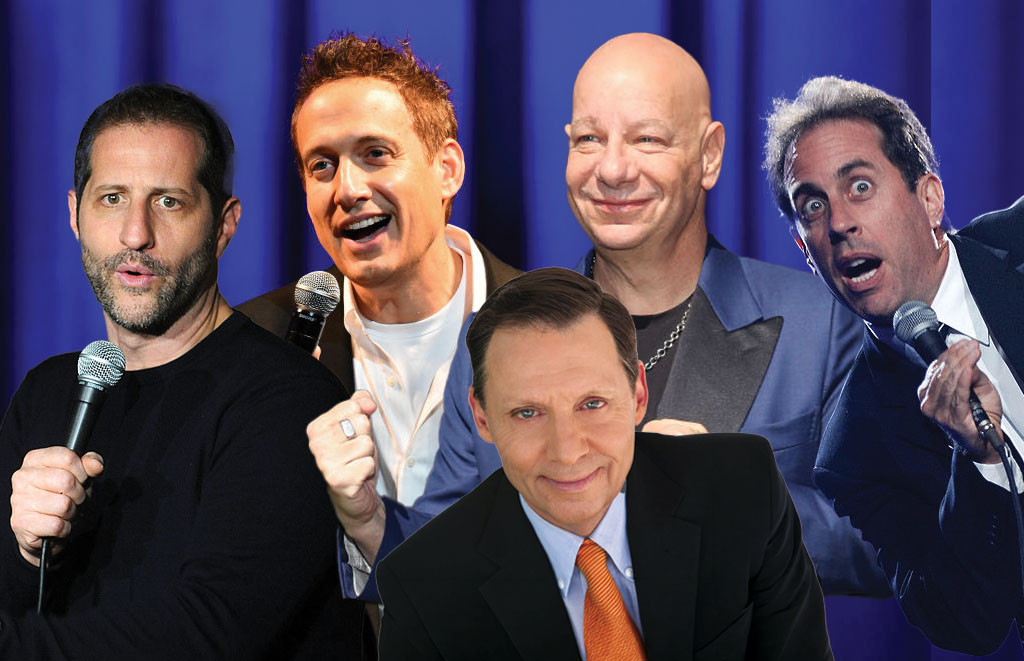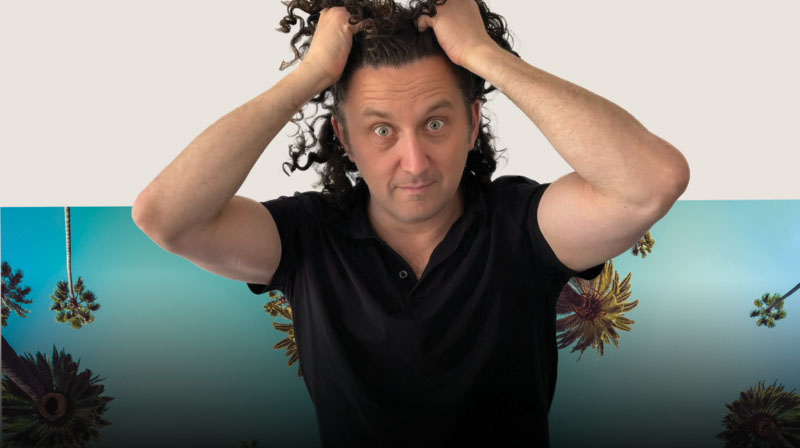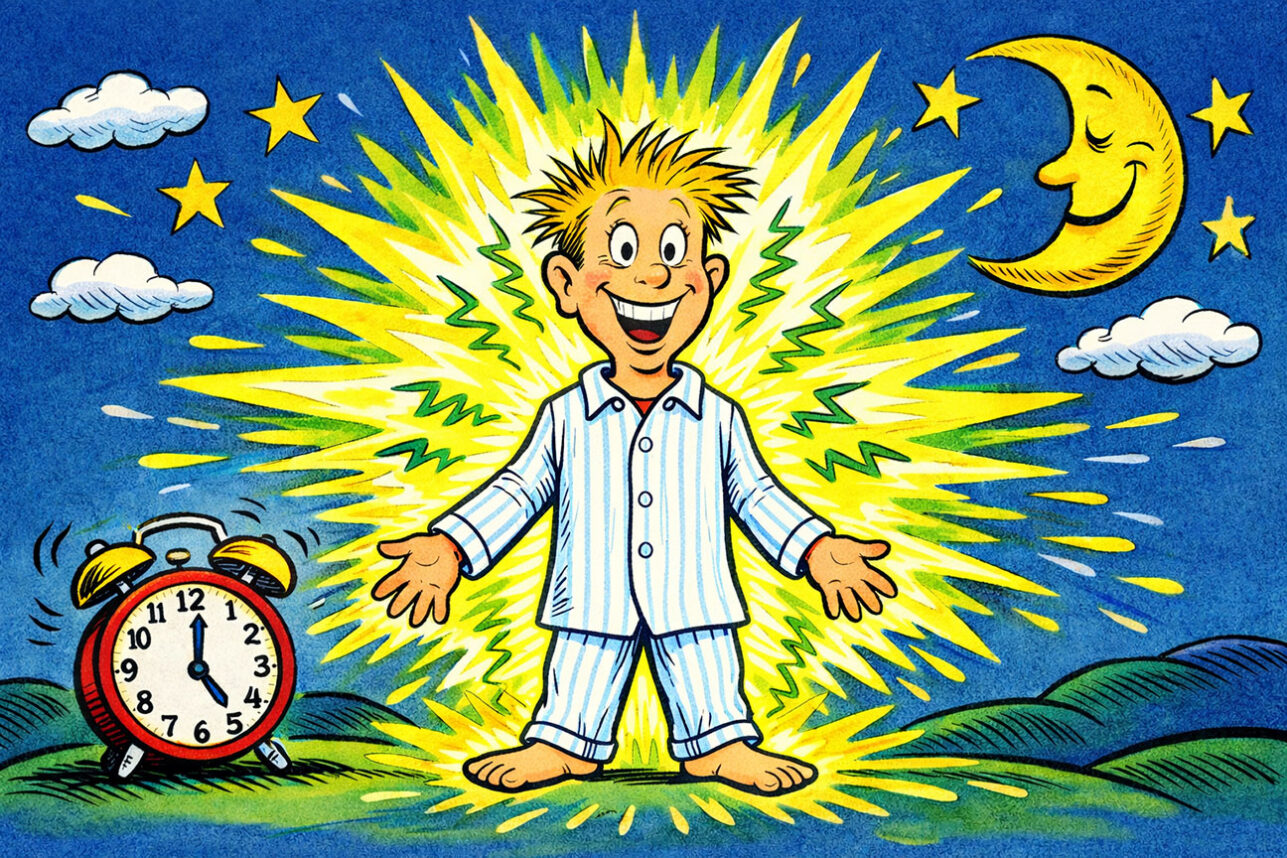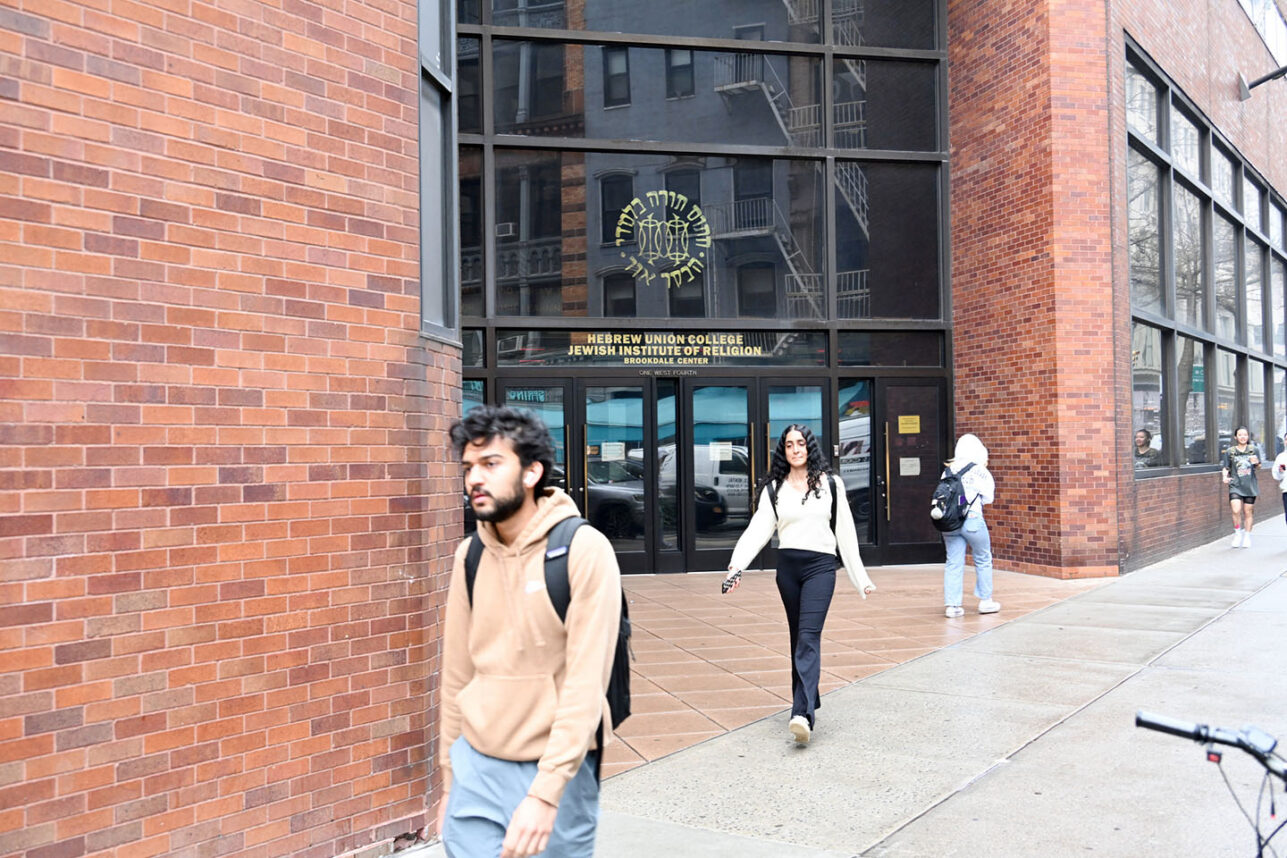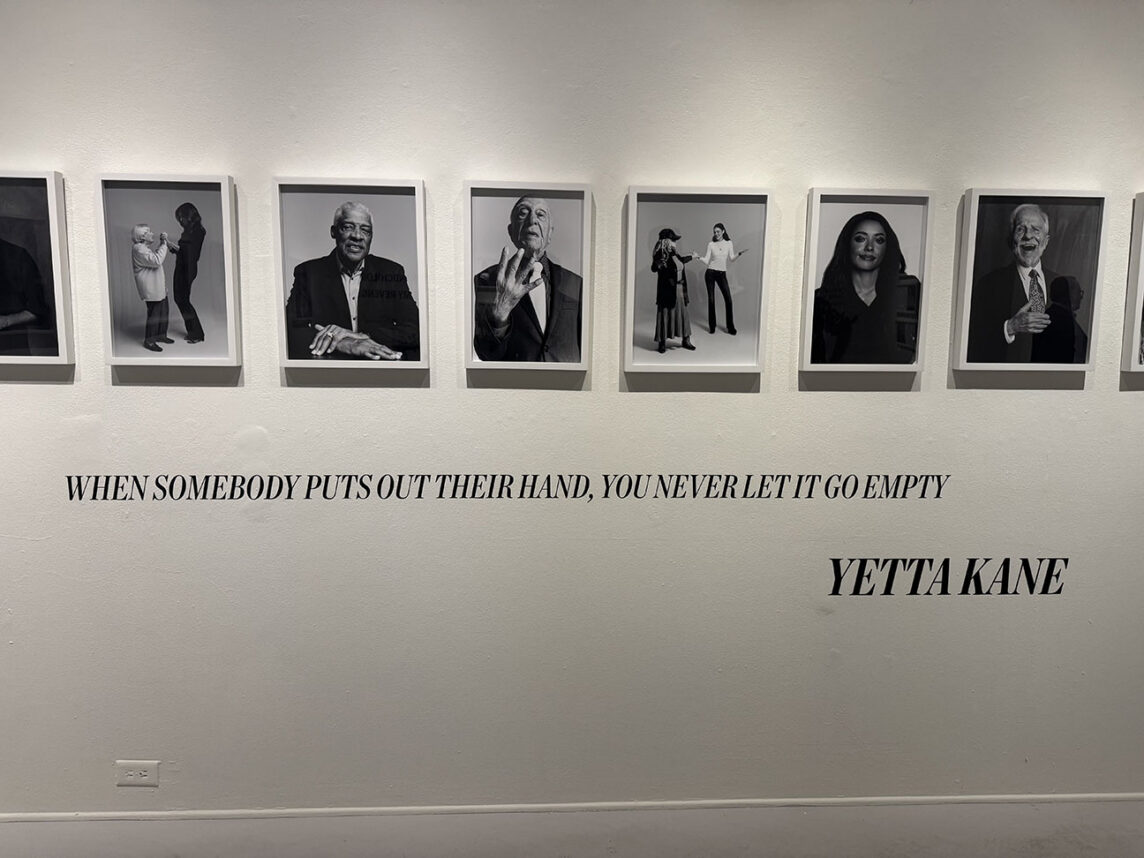
When lifelong friends Aaron Karo and Matt Ritter launched their podcast “Man of the Year” in November 2022, it began as a series of comic discussions about male friendship.
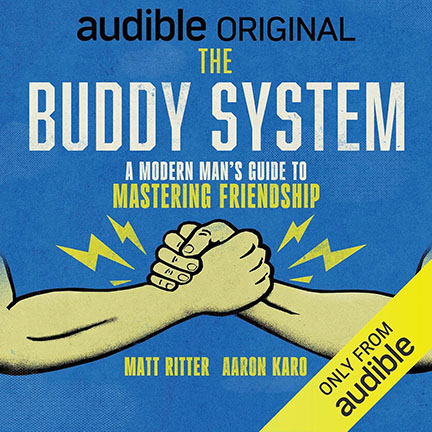 Now, with the release of their Audible Original audiobook “The Buddy System: A Modern Man’s Guide to Mastering Friendship and Leveling Up Your Life,” Karo and Ritter have distilled three years of podcasting into a single, five-hour listen that feels both structured and spontaneous.
Now, with the release of their Audible Original audiobook “The Buddy System: A Modern Man’s Guide to Mastering Friendship and Leveling Up Your Life,” Karo and Ritter have distilled three years of podcasting into a single, five-hour listen that feels both structured and spontaneous.
Karo sounds like he’s a natural at making friends. Ritter sounds like everybody’s top pick for “kindest dude I know.” Listening to “The Buddy System” feels like sitting across from two friends who can finish each other’s sentences but approach life from opposite ends of the dive bar. What separates Karo and Ritter from other hosts (and now co-writers) is their mindful reflections and respect for the pitfalls of friendship — without cutting back on the sprinkles of boorish buddy behavior.
Karo is the methodical one. He’s obsessed with structure, his email inbox at zero, can vibe with anyone— yet still keeps a spreadsheet of people in his life. He’s been publishing humor and cultural commentary since his college days at Penn, when his “Ruminations” email list went viral. He has since written seven books, including “Ruminations on College Life.”
Ritter, a lawyer-turned-comedian and TV writer, is a husband and father whose overflowing inbox drives Karo crazy. It wouldn’t be a stretch to assume that this combination of authors would lead to worthless friendship advice like “just be yourself” and “you know, just shoot the s—.”
The origins of their book come from the inspiration for their podcast. “Man of the Year” derives from an annual tradition amongst their buddies.
“Every year on the Tuesday before Thanksgiving, we gather at a steakhouse in Brooklyn and vote on which friend had the best year,” Karo told The Journal. “That tradition kept our crew going strong for 35 years.” That Thanksgiving week ritual, the annual “Man of the Year” dinner, is only part of their podcast story. After two decades of social media and post-pandemic isolation, adult connection has atrophied. Their podcast — and now their book — offer ways to rebuild that muscle.
“Men are in crisis,” Karo said. “There’s a friendship recession, and who better to help than two guys who consider themselves the champions of friendship?”
Over the past three years, Karo and Ritter have touted “Man of the Year” as the “number one friendship podcast in America.” With episodes like “How’s Your Mental Health?” and “Friendship Dry Spells,” their audience was far beyond just dudes. Women tuned in too for a litany of reasons, with many writing to the hosts that they did so to understand how men talk when they actually open up.
The podcast had a special guest for its 100th episode in October 2024: then-U.S. Surgeon General Dr. Vivek Murthy. He spoke about how friendship strengthens immunity, reduces anxiety, and even extends lifespan. Murthy deputized both of them as “Chief Friendship Officers of the United States.”
“You go to a trainer for your body, a therapist for your mental health,” Ritter told the Journal. “We’re talking about social fitness…you have to be intentional about it.”
Part of what makes “The Buddy System” work is what it avoids. There’s no jargon about optimization, biohacking, no “modules,” no motivational hard sell. “The Buddy System” is one of the rare podcast-to-book spinoffs that delivers even more value.
“Everyone talks about making friends or keeping friends,” Ritter said. “But articulating how adults can deepen friendships, that middle space, was tricky … You can’t just say, ‘Hey, I’d like to take our friendship to the next level.’ We wanted to show what that looks like — more honesty, more consistency, more intentional time — without making it sound like a self-help cliché.”
Part Two of the book, “Leveling Up,” they admit, was one of the hardest to write. Translating subtle emotional shifts into something actionable took work. Yet it’s those moments — the “LUMOs,” or Level-Up Moments — that have given the book such value to anyone looking to tweak how they maintain meaningful friendships.
When they first began dividing up the manuscript, Karo took the lead on chapters that required data, psychology, and structure. Ritter gravitated toward the sections on grief, fatherhood, and vulnerability.
“Certain sections, like ‘Dad Friends’ or the parts about grief, were definitely more Matt’s wheelhouse,” Karo said. “It ended up being a perfect meld of our very different personalities.”
Underneath the humor, The Buddy System acknowledges what’s at risk when friendship fades.
“I know it sounds a little trite, it’s easy to be there when things are going well,” Karo said. “It’s really you being there for your friends when things aren’t going well and that’s the kind of thing that you remember. And those are the tougher, that’s tougher friending. It’s easy friending when things are going great. It’s tougher for when they’re not.
That theme carries through the podcast too, particularly in episodes like “Friendship First Responders,” where Ritter tells the story of his wife going into labor and instinctively calling Karo. That episode influenced chapters such as “The Hard Times” and “Friendships Worth Saving.” In both formats, that’s the heartbeat of their work: showing up, following through and refusing to let silence or busyness dissolve connection.
The timing of “The Buddy System” couldn’t be better — or more sobering. According to the American Survey Center, 15% of men report having zero close friends, nearly five times higher than in the 1990s. The U.S. Surgeon General has even labeled loneliness an “epidemic.”
The book is comforting and motivating for adults of all ages — not just men in their 30s and 40s — for navigating social life. This book is useful for everyone to do an audit of how they approach friendships. The listeners who grew up with lousy parents or corrosive friends will find as much value in this book as the social director of any given friend group.
Karo and Ritter both grew up with strong examples of friendship in their parents’ generation.
“My parents have incredible social fitness,” Karo said. “They have a lot of friends. They have rituals, which is one of our key tenets.”
Both Karo and Ritter are Jewish, and as a parent himself, Ritter sees belonging to a synagogue as part of his friendship health.
“We grew up in Plainview, New York in all-Jewish town, and so there were sort of varying levels of Jewish identity,” Ritter said. “I think we didn’t sort of even realize that the world wasn’t like towns filled with Jews. Then we moved to New York and you’re kind of surrounded by it. But I’ve actually recently started going to temple again, and we joined the temple because we wanted our child to have Jewish identity and we actually wanted to meet some parents. So we’re actually using the temple as our “third place” — something I never actually thought I would end up doing. And here I’m actually meeting other young parents through the temple.”
By the time the authors reach the “Tradition!” and “Trophy Life” chapters, their message feels earned: ritual and recognition — no matter how goofy — are what keep friendships alive. And of course, love. They end each of their podcast episodes with a sincere “I love you” to each other.
The friendship recession is real. So is the exhaustion that comes with adulthood, parenthood and constant connectivity. “The Buddy System” doesn’t promise to fix that. It offers something smaller and more radical: a reason to text someone, plan something and follow through.
“The Buddy System: A Modern Man’s Guide to Mastering Friendship and Leveling Up Your Life” by Aaron Karo and Matt Ritter is available exclusively on Audible.












